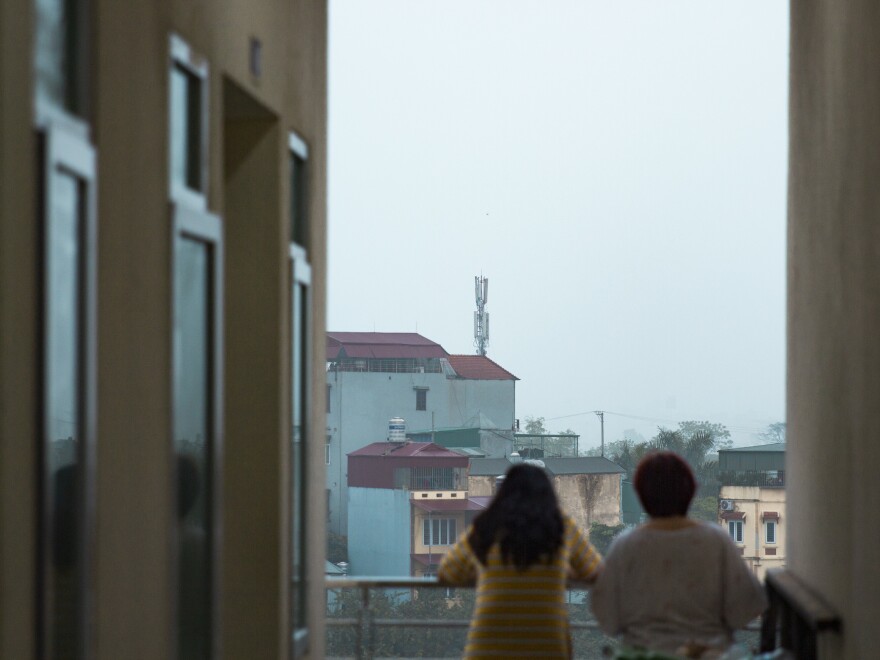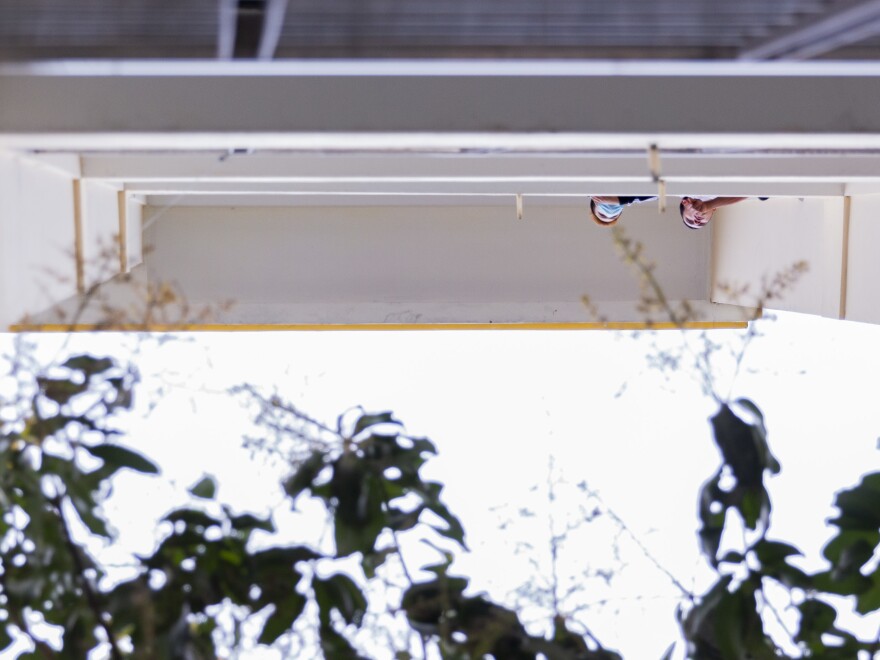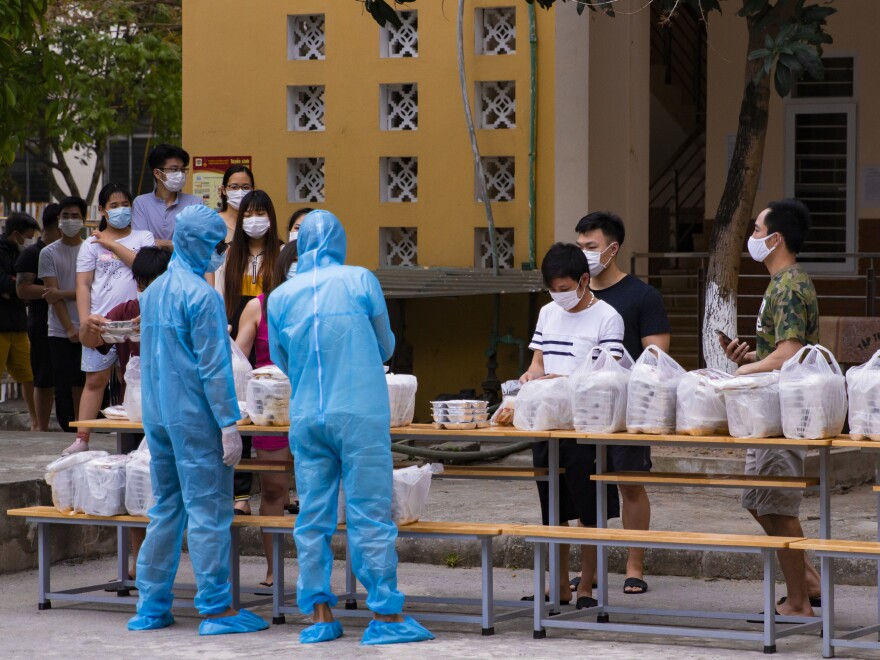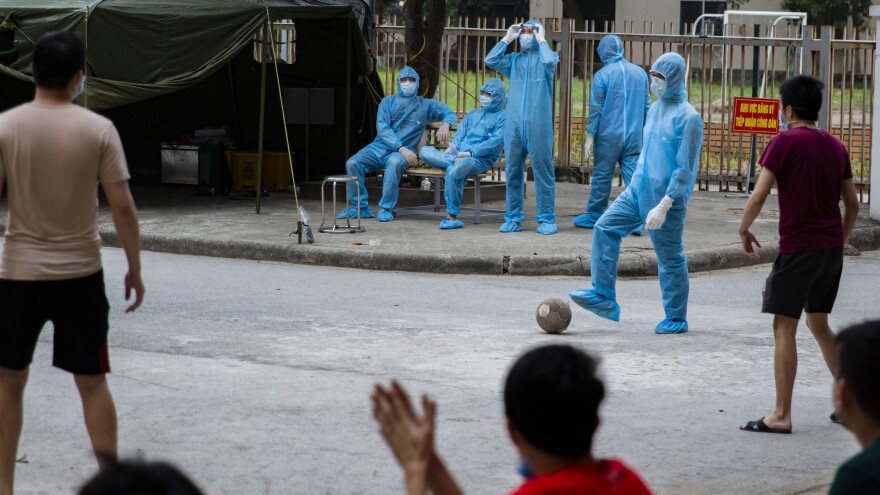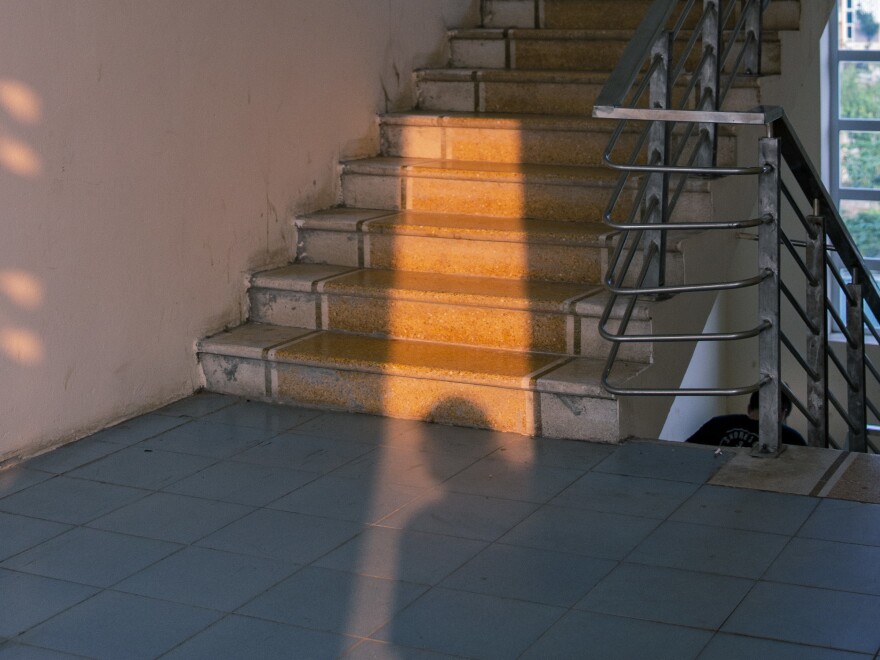Usually, when I arrive home in Hanoi, I'm out the same day riding my scooter around the treacherous traffic of the Vietnamese capital, past the little cafes and food vendors on the sidewalk. The thrill of making it, sometimes narrowly, through a chaotic sea of pedestrians, scooters and cars is oddly liberating.
But this time was different. I had managed to get one of the last flight tickets from Syracuse, where I'm a senior in a photojournalism program at Syracuse University. And after the 30-hour trip — with many passengers wearing face masks, vinyl gloves, and protective goggles — instead of exiting the terminal through the automatic doors to where my dad and grandfather always wait for me, I was taken on a bus, sprayed with disinfectant, to a quarantine center on the other side of the city.
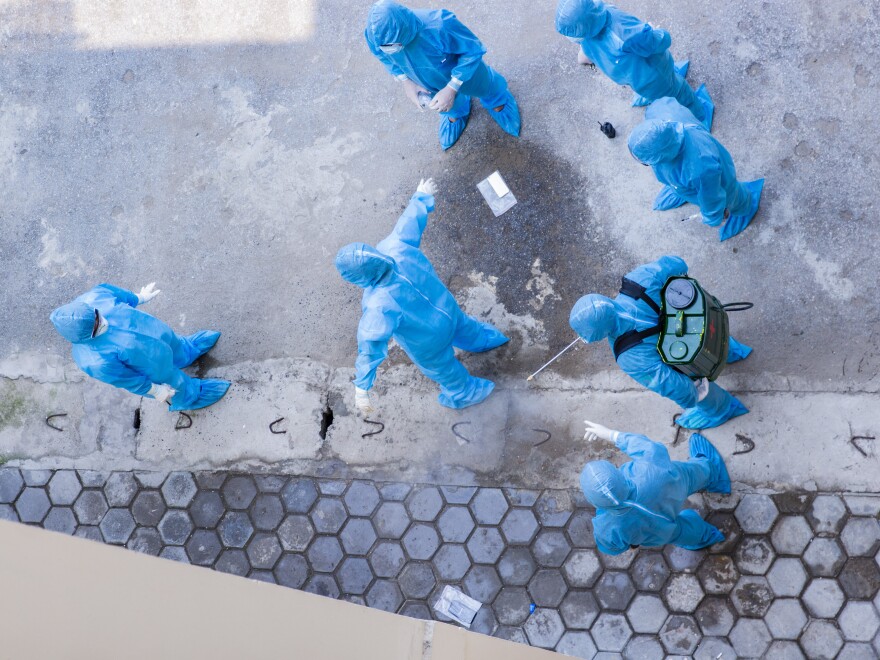
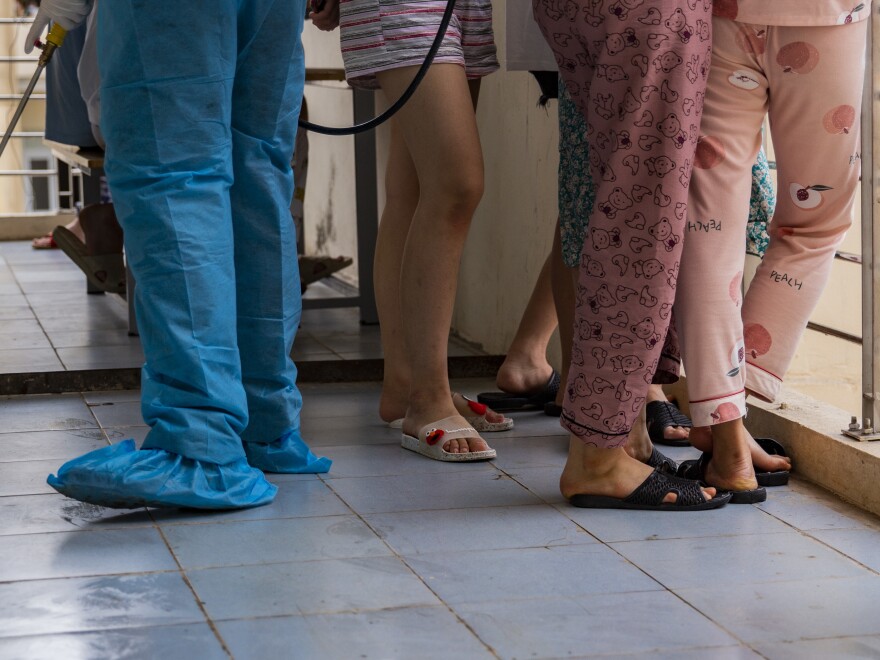
It was in the dormitory of the Hanoi Vocational College of High Technology, one of the places cleared out to handle the influx of people coming back from all over the world. It's eight people in a room of bunk beds, and we try our best to keep our distance and always wear face masks except when eating.
The night we arrived, our room had pillows, blankets, mosquito nets, hand soap, and toilet paper. The next morning, we got cups, small towels, shampoo and body wash, slippers and clothes hangers.
We're given three free meals a day, face masks and hand sanitizer. Our rooms are disinfected daily. And we got tested a few days after we arrived. All of it was free of charge.


Life here is easy. I can't complain. But there's not much to do aside from eating and sleeping. Besides homework for my classes, I play some games on my phone and go for walks around the center, and take pictures to keep my mind active.
I'm well aware that in this pandemic, being bored is a privilege. At the same time, I'm struggling to gain a sense of closure. My stay in the U.S was cut short and I'm not sure when I'll be able to come back. Syracuse University canceled the in-person commencement ceremony; my parents were going to make the trip from Vietnam to see their daughter in cap and gown. With all the free time I have here, I think back on the time I spent with other students in my program, going out to shoot photos, helping each other edit projects, having drinks and heart-to-heart conversations. Goodbyes are never easy, but this abrupt separation from people who I've known and loved for years breaks my heart.

Here in quarantine, many lives have been turned upside down in different ways. A roommate of mine came back with her 2- and 5-year-old children, while her husband stays at his engineering job in Japan. They talk every night for hours. Another is a freshman who is on Zoom trying to keep up with her classes, at a college in Ohio, 11 time zones away. And another roommate had to postpone her wedding.
There's a man in a military uniform, who is referred to as "the commander" on the posters outside our rooms, who runs this quarantine center. Using a megaphone, he calls out a man who wasn't wearing a face mask. He also asks for our understanding of the hardship endured by the health workers, whom he calls "brothers." Even in their blue PPE's, they are risking their own lives and will have to isolate themselves for an additional two weeks after the last of us leaves quarantine. We clap and cheer for them when the officer asks, so they know we're grateful for their sacrifice.
Copyright 2023 NPR. To see more, visit https://www.npr.org.
